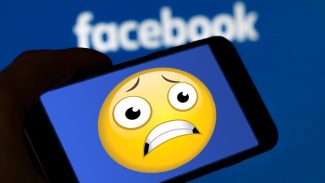5.1 Surround Sound Music & Video – Continental Drift on 3BBR & CRN – Australian Television – Paintings – Design – Cartoons – Animation – Sculpture – Woodcraft

There is life after Facebook. I’ve now lived without it for well over 18 months. It’s been nothing short of liberating.
Many of you have been manipulated into spending far too much time intertwining your lives with it, and trusting it to work in your best interests.
As I write today, Australia is engaged in a battle that the world is watching, with the Federal Government on the verge of legislating to make media juggernauts like Google and Facebook pay major media outlets for news stories shared on their platforms. Important here is that these influential companies are prolific data miners, and have been using that data to make enormous profits by keeping users engaged with their services (because you looked at A, we'll happily shove an Ad for B in your face).
The issue is obviously complex. We can't shy away from the reality that our news has been transforming from paper to digital. We need to support a diverse range of opinions about what is going in our world from reputable news services, lest we forfeit more of our democracy. There’s a definite need for a mechanism where organisations that believe in quality journalism get paid fairly for investigating and publishing that news, no matter how big or small they are. There is some reciprocity involved with social media and search engines, but the balance seems badly skewed. Follow the big money, and it becomes clear who has the upper hand.
Today, some Australians were shocked to find many "news" outlets blocked on Facebook, with FB hoping to bludgeon the government into withdrawing its legislation. Bureau of Meteorology weather warnings, State Government health information on Covid-19 vaccinations, activity posts from small regional businesses, and even emergency services information was removed from feeds. That strategy can't possibly backfire, can it?
It’s really hard to feel sorry for those who’ve relied almost entirely on FB as part of their marketing strategy, and today suddenly found themselves without a voice. There are parallels here to Australian universities that leaned too heavily on fees from foreign students to pay their way, and suddenly found those students locked out behind closed borders during a global pandemic. Diversifying how you draw in customers or disseminate news is suddenly more important than ever, with this particular challenge imploring it.
Most Facebook users have become lazy. They’re using the platform as an aggregator, feeling little need to go directly to the website of their preferred commercial or public media outlet to get their news (e.g. ABC News, The Guardian, The Age, Nine etc.). If you take away genuine news and information, FB is left biased with those intent on spreading misinformation, half-truths and conspiracy theories. Anyone with a budget can simply pay to boost their posts, and the gullible will devour it. We saw appalling examples of what that can lead to, Trump being elected US President, and the UK stupidly being duped into voting to leave the EU.
Understand that what Facebook prioritises in your feed is motivated by profit, not your best interests, and that Google’s top results are far from random and favour those who pay.
Get over it people. Life goes on just fine without FB. Walk away.
Try Bing instead of Google. It’s works just fine.





